There have been frequent sightings of the fabled “WATCHMEN sequel” over the years, but no photographic evidence, if you will. Now, Bleeding Cool claims to have a solid source that a series of four prequels are under way, and Andy Kubert is slated to draw at least one of them. Also believed to be involved: J. Michael Straczynski, JG Jones, and original WATCHMEN collaborators John Higgins and Dave Gibbons. Darwyn Cooke is said to be masterminding the whole thing.
Although unverified, Cooke and Kubert have been hinting at working on Top Secret projects for a while. WATCHMEN II supposedly got the nod after Paul Levitz left DC — he had personally blocked it for nearly 20 years, kind of like that dude guarding the one true Chalice in INDIANA JONES AND THE LAST CRUSADE. But like that dude, Levitz couldn’t hold on forever. With him gone, the story goes, Dan DiDio hopped all over it. But a lot of people at DC also thought the idea was blasphemy, and it kind of petered out — or at least leaks about it to Bleeding Cool did.
Alan Moore confirmed the story in an interview with Wired:
“They offered me the rights to Watchmen back, if I would agree to some dopey prequels and sequels,” the influential comics legend told Wired.com. …“So
I just told them that if they said that 10 years ago, when I asked them for that, then yeah it might have worked,” he said. “But these days I don’t want Watchmen back. Certainly, I don’t want it back under those kinds of terms.”
Although getting Moore on board would obviously have been a coup — and about as likely as getting Jack Kirby to endorse the next Captain America movie with the one extenuating circumstance being that Alan Moore is still alive — contracts being contracts, it isn’t necessary to continuing with the project. The whole thing led to some hurt feelings with Dave Gibbons over his becoming a middle man for the project:
Yeah, sometime in June. I received a phone call from Dave Gibbons in which I probably did sound a little bit unfriendly on the phone, because it was very clear that he wasn’t phoning up to thank me for the WATCHMEN film money and I figured that he was probably phoning up to talk to me about something else to do with WATCHMEN. I was busy at the time, I told him to call me back on the Monday. Sure enough, he said, “Alan, got a few minutes? I just want to talk to you about WATCHMEN.” So I said, “As long as it was a few minutes only, Dave, and if that is the end to it.” He then went forward — I didn’t let him get very far — but he said, and I knew, that he had always been opposed to the prequels and sequels of WATCHMEN and had always had the assurances of people like Paul Levitz at DC that that would never be done. But of course, those people aren’t there anymore and it was a different regime, and I had heard that the new Head of DC had announced that she really wanted to pursue some of DC’s key properties, by which I assume she probably meant WATCHMEN. I think she may have even mentioned it, I don’t know. So I said to Dave that yes, I had heard about this and he was saying that he knew the thing that I always wanted was the rights to WATCHMEN back. This was said with the kind of understanding that if they gave me back the rights to WATCHMEN, then I would in return sign over the rights to secondary properties such as, oh I don’t know, Rorschach comic books, sequels, prequels, all of these things…
As I read these new rumors, while a Top Secret Project can remain behind closed door for a while, once a project actually goes into production, more people know about it, so the veracity of these rumors (and the timeline of its creators going into seclusion) would suggest that they might actually be released in 2012.
All speculation, of course.
Which leads you to ask: Why? Why is any prequel to the greatest—and best selling—superhero graphic novel of all time — a book that has found its way into being an actual literary classic as well — even necessary? Given the large revenues that such a huge project would bring in, it would seem that the cash grab alone would justify it in these low margin times.
And let’s face it, there have always been tick birds riding on the backs of great literary sensations. “The Wind Done Gone” anyone? Unauthorized sequels of everything from The Catcher in the Rye to Moby Dick have been written. And of course, those were just literary masterpieces — WATCHMEN is a corporate franchise with opportunities for toys, video games, posters and underwear. And who wouldn’t want to read “The Early Rapes of the Comedian”?
Dave Gibbons had his own reservations when asked about prequels earlier this year:
“I think, without wishing to sound like a deposed dictator or a mob boss, that I’d like to take the Fifth and at this point say I reserve my position and say I have no comment to make. […] It’s not something that I’d personally like to see happen. I sense you’re drawing me a little off the position of not commenting on it, so I think I’ll kind of leave it like that. What I would say is, intrinsic to the whole idea of Watchmen is that they existed in a world that was the way it was because of their existence. And I think to transplant them into another world actually removes a huge part of what is the essence of Watchmen.”
What changed his mind — if his participation is true? If the rumored creators are actually the ones doing the prequels, it’s a good lineup of principled creators. The idea is kinda stupid and doomed to unfavorable comparisons with the original — just like all those literary sequels mentioned above — but the profits would bring a lot of money into a cash-starved industry. So…we get it.
Personally we’d rather read that Alan Moore novel he’s been working on. Get on it, Alan!


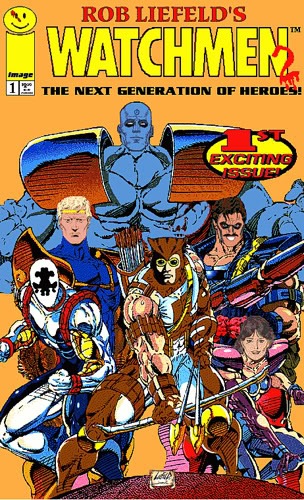
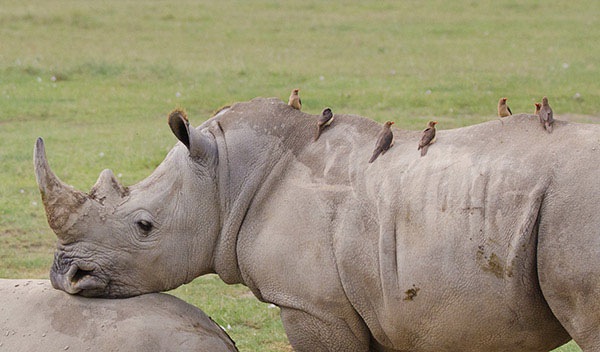
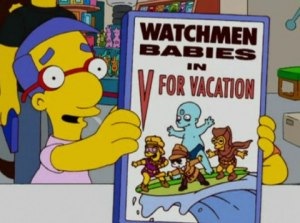
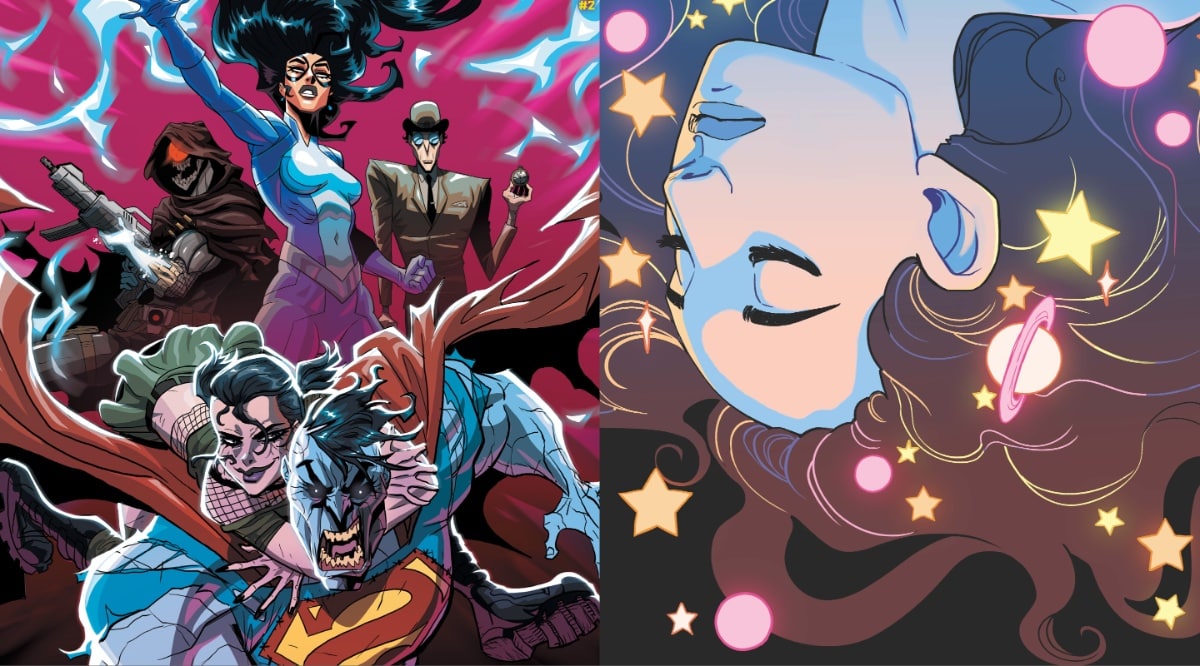
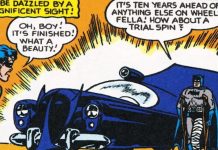
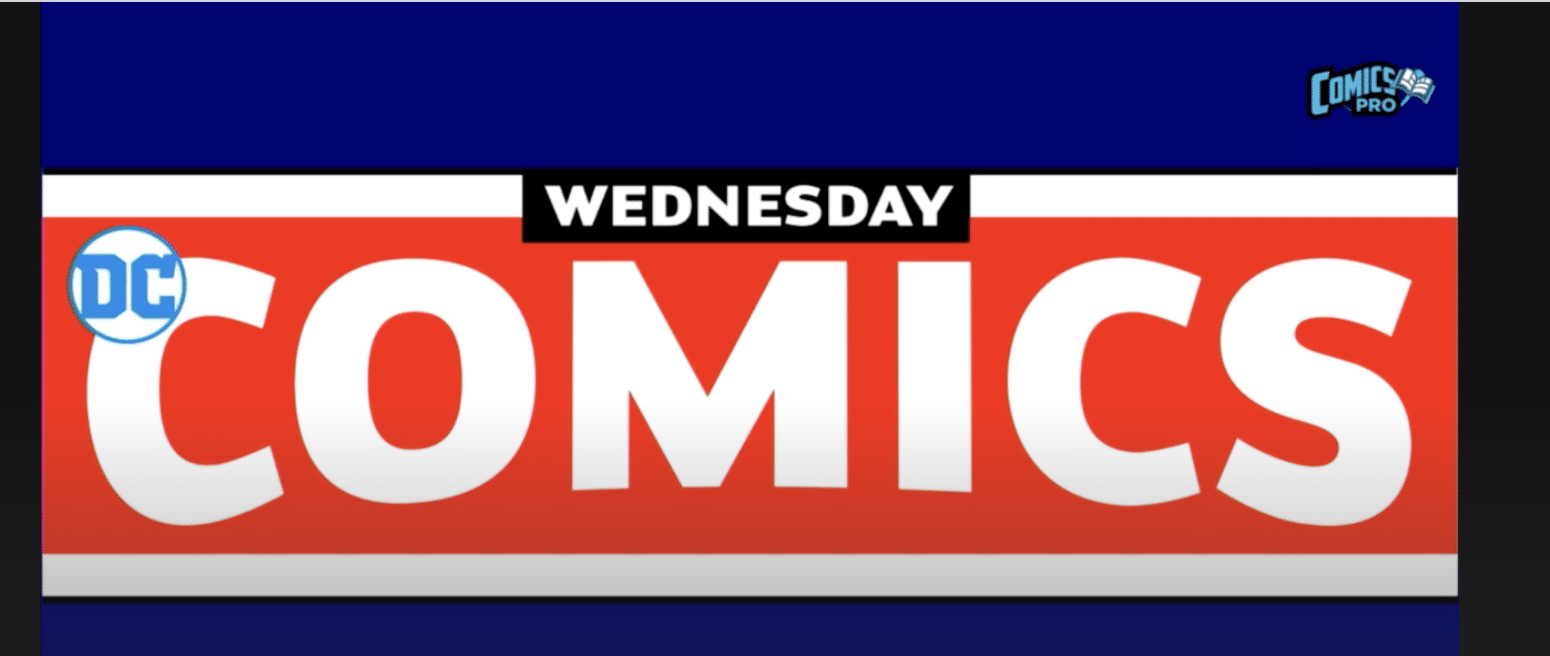



This is the absolute worst idea I’ve ever heard of in comics. I only went to law school, I never became a practicing lawyer and have no plans to, but everything I’ve ever read about the contract for Watchmen leads me to believe if Moore ever got over his distaste for lawyers, he could sue WB for a *lot* of money.
As far as comparable literay sequels go, this would be more like following up Gravity’s Rainbow or Infinite Jest…possible, but the original work is from such a unique voice a sequel by anyone else would just be a waste of time.
It’s not the absolute word idea ever in comics. There have been much worse ideas with far less talented people attempting it.
I’m not so sure you’re correct about that contract.
I don’t see the big deal about a prequel/sequel/whatever. It’ll come out, it will either be good or bad, and we’ll move on. They are world building their own property. They have the right to do that.
How is Watchmen any more sacred then the characters Moore uses in League of Extraordinary Gentlemen. Making judgements on the quality of what this will be like when it hasn’t even been confirmed as being in progress is ludicrous.
Alan Moore lost the moral high ground on this when he turned James Bond, a character he did not create, does not own and is not in the public domain, into a rapist and a traitor. If you want people to respect your creations then you need to be respectful of the creations of others. If you don’t show that respect you look like a hypocrite complaining when others don’t show respect to your creations.
This is especially true when the creations are thinly disguised versions of company owned characters that started out as the company owned characters and were only changed into new characters when the company requested it. Had Moore’s original proposal gone though to publication he’d have as much claim to them as he has to Swamp Thing, which is to say no claim at all.
(BTW, Am I the only one who remembers that Moore and Gibbon were at one time announced as working on a prequel but it was scrapped when Moore and DC had their falling out.)
One practical problem to doing add-ons to WATCHMEN might be that the status of the GN will be diminished. People who haven’t read it will see the books as a group and some of the opinions, pro or con, and decide not to read that. It’s unlikely that the prequels and the GN will be hailed as a group of classics.
SRS
The right people doing these books will be awesome. The wrong ones, not so much.
Honest, the WATCHMEN graphic novel will always be available…sales will dictate if they have an audience.
Correct me here if I am wrong, arent all these characters owned by D.C. comics? Seriously…Anyone know?
@Jimmy: I believe DC owns the rights, but only so long as they keep the book in print. If it goes out of print (don’t know if there’s a specified length of time) the rights revert back to Moore and Gibbons. That’s actually one of Moore’s (many) beefs with DC.
@Heidi, re: And who wouldn’t want to read “The Early Rapes of the Comedian”?
You just uttered the mating call of the ubiquitous Scottish Mark Millar.
“One practical problem to doing add-ons to WATCHMEN might be that the status of the GN will be diminished.”
As arguably the “most critically acclaimed graphic novel of all time” do you realistically see this as an honest issue? Because I don’t. Not with the press that is put out about it over and over and over again.
“The right people doing these books will be awesome. The wrong ones, not so much.” – Thank you once again, Jimmy. My point exactly.
I say do it. There are no sacred cows with fiction anymore. Especially one that is a deconstruction. I think it could work if they treat it as well as the other deconstructed superhero book that Alan Moore left, Miracleman.
I stand by this being the absolute worst idea on comics. I mean, George RR Martin is a good writer, but would a Martin written sequel to Infinite Jest be a good idea? No, of course not.
As I understand it, at the time of the contract signing, the longest any trade had been in print was 18 months. Therefore, Moore, Gibbons, and DC couldn’t have reasonably expected the book to stay in print for 20+ years. Further, it could be argued as a legal issue the contract only covered the rights to the graphic novel itself, not for the ideas inside to be used in other works.
I know it’s hard to accept WB and DC are acting in bad faith. But they are.
Except for Cooke, and Kubert, the other two contemporary creators rumored to be involved in this sequel I feel will deliver material that is extremely boring based on past output.
blacaucasian & Synsidar:
Two words: Phantom Menace. Most people (kids) who are introduced to Star Wars today are introduced via either The Phantom Menace or The Clone Wars cartoon. My kids don’t see Star Wars as three movies about Luke Skywalker with three more about his father; they see it as one single story about the rise and fall of the Empire and Darth Vader. And because the original Star Wars IS episode IV of VI, to them it feels like they’re starting in the middle. It’d be like reading Return of the King before Fellowship of the Ring. So, yeah, I think this move by DC to turn Watchmen into a franchise will eventually devalue the importance of the original story.
But on the other hand, there have been tons of unnecessary sequels/prequels to literary classics over the past few decades: Gone With the Wind, Peter Pan, Casablanca… I’m sure there are others. Most of those sequels have quietly disappeared while their inspirations have continued to be iconic.
So what do I know? It seems like an awfully big gamble by DC for what appears to be a naked cash grab. But all this is moot until we see an official announcement, probably in January.
I think the most interesting thing Moore could do at this point is cut the legs out from underneath the project now and voice his disapproval before it’s announced. And I could actually see him doing that.
“How is Watchmen any more sacred then the characters Moore uses in League of Extraordinary Gentlemen.”
Those characters were in the public domain.
“Alan Moore lost the moral high ground on this when he turned James Bond, a character he did not create, does not own and is not in the public domain, into a rapist and a traitor.”
You’re comparing apples and oranges. Moore used a Bond knockoff in a new story that in no way connected to or played off events of any of the Bond stories. An analog to what you’re saying would be if Moore had the rights to Watchmen and DC used a Dr. Manhattan knock-off named “Doc” or something in a Superman story. And that’s kinda the point…it’s not about owning the characters, it’s about trying to make a story piggybacking off another story and exploiting a contract to do so.
“I know it’s hard to accept WB and DC are acting in bad faith. But they are.” It’s not just them. The arts and entertainment fields are persuing the trend of recycling material from the past. Remakes, covers, prequels, and sequels. We’re in a period of intellectual stagnation. I wish I could say nostalgia is driving this, but the attempts have been so cynical and half-hearted that I wonder.
The Star Wars comparison is interesting. Anectdotally, I can tell you my friends, a group of 35-year-old dudes who grew up with Star Wars no longer talk about it with the same reverence we did before the prequels. And it seems like kids are less into then they were before them (though that could just be the passing of time).
On the other hand, did Dark Knight Strikes Back really have much effect on the prestige of DKR? Does the difference between a sequel and a prequel have some impact here?
Of course, both of the above are by the same author. That’s another factor.
There were sequels to both CATCH-22 and GONE WITH THE WIND and the world went right on spinning (and largely ignored them.)
>> As I understand it, at the time of the contract signing, the longest any trade had been in print was 18 months. Therefore, Moore, Gibbons, and DC couldn’t have reasonably expected the book to stay in print for 20+ years.>>
On the other hand, lots and lots of novels had stayed in print that long, and in-print-based reversion clauses were and are common in publishing, including at DC’s then-sister company, Warner Books.
As for whether trades had stayed in print that long, maybe not at DC’s then-young trade program, but comics in book form include TINTIN and ASTERIX album, which had been in print for far longer. I’d also wonder about the longevity of ORIGINS OF MARVEL COMICS and various comic-strip collections.
And then there’s the WONDER WOMAN contract, which had a similar clause in it, and had prevented reversion of WW rights for decades.
DC isn’t keeping WATCHMEN in print through chicanery; they’re keeping it in print because it’s selling. That it’s been selling solidly for a long time doesn’t mean the deal as made in bad faith, it means the book did surprisingly well. I don’t think that’s a winner of an argument — a court would look to publishing law, not to how long one publisher’s books had stayed in print prior to that time. Certainly, when Simon & Schuster were a young company, their books hadn’t stayed in print long, but their reversion clauses weren’t affected by that.
>> Further, it could be argued as a legal issue the contract only covered the rights to the graphic novel itself, not for the ideas inside to be used in other works. >>
Could it? It would depend on what the contract says, and from my experience with DC boilerplate, I doubt very much that the grant of rights was limited to the story itself and did not specifically include control of the characters and concepts beyond the story itself.
I haven’t seen the WATCHMEN contract, but I wouldn’t simply assume that such an argument could be made with any foundation at all.
I really enjoy the Watchmen prequels. Steve Ditko did a wonderful job on them.
“And let’s face it, there have always been tick birds riding on the backs of great literary sensations.”
In all fairness, those little birds have a symbiotic relationship with the rhinos. Sequels and prequels to WATCHMEN, not so much.
WATCHMEN will remain a great graphic novel, but how many people in the future will dismiss it? TARZAN OF THE APES is one of the all-time great adventure novels — but most people think of the countless Tarzan tie-ins (originally perpetrated by Edgar Rice Burroughs himself) and dismiss the book.
“You’re comparing apples and oranges. Moore used a Bond knockoff in a new story that in no way connected to or played off events of any of the Bond stories.”
Sorry but no, The whole concept behind the LOEG is these fictional characters all exist in the same universe. That is the whole point of the concept. You don’t get to say that’s really Capt Nemo but that guy isn’t really James Bond, (see we called him Jim, not James, nudge nudge wink wink, don’t sue us). Also in interviews when the first series came out Moore made a big point of saying that James Bond’s grandfather was on the team. (Not a knockoff, the real deal). The Black Dossier confirms that relationship. Saying it’s a “knockoff” after the fact to avoid being sued is disingenuous at best. (And for the life of me, I still don’t understand how they didn’t receive a cease and desist order).
“An analog to what you’re saying would be if Moore had the rights to Watchmen and DC used a Dr. Manhattan knock-off named “Doc” or something in a Superman story.”
No an analog would be if DC went ahead with the Watchman sequel but changed Doctor Manhattan to Professor Gotham (and did the same with all the other characters). Do you honestly think for one second that Moore wouldn’t be complaining to the press if that happened? Hell, I’d be willing to bet that Moore would be bitching if DC did a thinly disguised sequel with the Charlton characters that the Watchmen were created as knockoffs of. This is the guy who insulted one of the best writers in comics today (without actually reading his story) because said writer picked up on elements from a story Moore wrote using characters he did not create or own which in turn picked up on elements from an earlier story from another creator. He considered that writer unoriginal and a hack for doing the same thing he did 20 years ago. “How dare Geoff Johns do the same thing I did back in the 80’s”. Apparently it’s OK to do a sequel to a John Broome story, (that totally contradicts and steps on another story by Gardner Fox BTW, but how dare another writer do that to one of his stories).
As I said he may be one of the greatest comics writers of all time, but he gave up the moral high ground on this stuff quite some time ago.
““How is Watchmen any more sacred then the characters Moore uses in League of Extraordinary Gentlemen.”
Those characters were in the public domain.”
Not all of them, Fu Manchu is not in the public domain, nor is James Bond or Emma Peel. I’m pretty sure Bulldog Drummond and Harry Lyme haven’t fallen into public domain either (and I’m told the latest volume has characters from Harry Potter, obviously not public domain).
Anyone making Star Wars comparisons…uh hello? The prequels were by the same guy who created the original trilogy. And Lucasfilm — which is named after George Lucas — actually owns Star Wars. You could say that Star Wars is the most successful creator owned property of all times!
That many of Alan Moore’s best known works are pastiches of other literary characters while he himself becomes incensed over changes to his characters….well that’s one of the delightful ironies of the world.
To Darren Hudak:
I think Moore lost his personal high ground on the issue when he admitted that he’s acting like a grumpy old man about all this stuff, knows he could be smarter about it, and just doesn’t care to.
The fact that he’s now one of the “Old Men on the lawn” as Warren Ellis would describe them is the part that infuriates me.
Certainly doesn’t make any of DC’s actions any worse, but then again, if that was the case, Moore wouldn’t be holding DC personally responsible for the whole V for Vendetta situation when everyone knows they had nothing to do with it, they tried to fix it, and he just didn’t care.
DC has tried way too many times to fix the problem with Moore, some in right ways, lot of times in very wrong ways. But at least they tried.
Alan Moore? He’d rather do nothing. Utter professional there.
Maybe some people consider it just a good comic book story instead of a literary classic. I think the names involved give more credibility to the project than if they’d gotten a TV writer or movie producer to do the stories. Not all comic fandom holds Alan Moore up as some sort of untouchable. After all, everyone from Jerry Siegel and Joe Shuster to Stan Lee and Jack Kirby have had their creations in the hands of others.
Alan Moore is a monster.
While I would like to see a Batman Rorschach team up, without Alan Moore’s blessing it seems not as much fun.
“Alan Moore is a monster.”
ROTFL
Wonder if they’ll get it or just “whoosh!”
“On the other hand, did Dark Knight Strikes Back really have much effect on the prestige of DKR? Does the difference between a sequel and a prequel have some impact here?”
I hate to admit it, but DKSA, All Star Batman & Robin and pretty much everything Frank Miller has done over the last 10 years have diminished my opinion of DKR a bit. I don’t hate it, but I’m not pulling it off the shelf every year any more.
Alan Moore is almost as big a monster as that guy who does the DC sales analysis.
The Beat:
“Anyone making Star Wars comparisons…uh hello? The prequels were by the same guy who created the original trilogy.”
Hello. :)
That wasn’t the point I was trying to address. I was saying that, regardless of who created a property (Lord, how I’ve come to hate that term), trying to expand it after the fact ultimately threatens the viability of the original work. Rich made the point above about Tarzan, but because there was such a saturation in the 50s and 60s due to the movies and TV shows, the character is quickly becoming a footnote to the pulp era while others live on.
But, like anything else, for every concept that gets watered down by unnecessary supplemental stories, there are others like Gone With the Wind and Catch-22 mentioned above that do just fine. Did you know that Samuel Clemens wrote FOUR Tom Sawyer/Huck Finn books? Nobody remembers “Tom Sawyer, Detective” or “Tom Sawyer Abroad” because they suck. Clemens event admitted that they were written as a cash grab, much like people think DC is doing. But they haven’t diminished the importance of Tom Sawyer or Huck Finn as characters or works of American literature.
Marc-Oliver Frisch wins.
This may be off tangent, but something just occurred to me: Would we be making as big a stink about this if it were being done in a different medium. Let’s say that DC commissioned Peter David or Max Collins to do a licensed novel set in the Watchmen Universe. Or a series of DVD movies. Does it matter what form the prequels take, or is it the fact that these are (or may possibly be) coming out as comics that is what has gotten so many people upset?
Food for thought.
Personally, I would love to read more stories about these characters. It wouldn’t take away from the original in my opinion. In many ways I would like to see more of these characters than Superman or Iron Man.
I’m not sure what the hesitation by DC is beyond annoying the purists. They’ve already rebooted the whole universe why not produce these books as well.
I am reminded when Mark Waid did that awful follow up series, “The Kingdom”, to KINGDOM COME.
IIRC Alex Ross wanted nothing to do w/this. Good call on his part, it was awful and immediately forgotten…
At this point, let it happen.
If it sucks, it sucks.
If it’s decent, it’s decent.
If, by god, it’s great, it’s great.
If the mere existence of prequels/ sequels/ whatever they’ll be called makes some look at Moore and Gibbons’ work in a lesser light, that’s on those people. The book remains the same. The story unchanged.
I’ll probably cop both Moores’ 900 page novel and the prequel/ sequels/ whatever they’ll be titled as long as I like the creators attached to said projects.
My interest is simply in a good story.
As I said on Fb yesterday when I first read this. The rape has begun. As someone once very close to Watchmen once said to me”..it’s theirs, they can do what the fuck they like with it!” Granted that was 20 years ago, but I presume that the statement was from the heart.
You all realize that DC doesn’t own Watchmen, right? Moore never signed away the rights permanently, and it remains a book that Alan Moore owns that a media corporation controls. I find it a little queasy that someone with legal publishing rights can take someone else’s characters and have their way with them, bastardize them for every dollar they can squeeze, without the authorization of, not only the creator, but the actual owner of the story, regardless of what crappy adaptations and spinoffs may have done to the value of the original.
Will Watchmen stay in print throughout human history? If it ever actually reverts back to Moore, what happens to the prequels and sequels?
Doesn’t the law have room for intent as well as interpretation of contracts? If everyone involved – contractor and contractee – had a group assumption that the work would revert to the author in a timely fashion, wouldn’t that be the basis under which the contract was signed? Of course, proving DC’s twenty-five years ago intent would be nearly impossible in court, but I wanted to throw this possibility into the discussion. I’m always a little surprised that opinion has turned so vehemently against the right of an author to do what he likes with his own story. This wasn’t work-for-hire, folks.
The cluelessness of the funny book (he said pointedly) industry and the few who continue to support its dying rattles never cease to amaze and amuse.
“Watchmen” is, by far, the closest thing the comic-book/graphic-novel/sequential-art form has come to being proclaimed as Art since George Herriman, and most of you see nothing wrong with “official” follow-ups by commercial hacks?
Just by even thinking about this, DC negates any pretense of being a publisher, past, present or future, of anything that resembles serious literature. It’s a hack house producing violent epinephrine-inducing poppers pushed to disaffected adolescents, as its recent cliche-ridden output called “the new 52” makes blatantly clear. That it sees its back inventory only as tinder to fuel their junkies’ next high goes without saying.
Even Turner knew not to colorize “Citizen Kane.”
I love this art form, I really do, but I’m just so sick at heart at what its most visible practitioners and consumers are making of it.
Well, there’s the new “Pogo” book, anyway….
@Allen Rubinstein: “I’m always a little surprised that opinion has turned so vehemently against the right of an author to do what he likes with his own story.”
Welcome to 21st century America, where everything, tangible and intangible, is a commodity, ethics equate to what one can get away with legally, and anyone who doesn’t do absolutely everything in their power to maximize their commercial potential is not just stupid but sick and must be condenmed.
One more thing: We are aware that Alan Moore turned his back on the comics medium after “Promethia” and hasn’t written a thing worth reading after it, aren’t we? We’re aware that, especially, Moore’s “League of” whatever stories are his statement on the industry: simple “action” stories about characters not your own for a simple payoff (both the reader’s emotional and writer’s financial), aren’t we?
Comparing 1980s Comic-Book Moore with 2011 Comic-Book Moore is like comparing pre-rheumatoid arthritis Renoir with his later works: Still intereting but not anywhere near the same depth.
I guess I wasn’t aware that “Moore’s “League of” whatever stories are his statement on the industry: simple “action” stories about characters not your own for a simple payoff (both the reader’s emotional and writer’s financial), aren’t we?”
Is it ok to like them anyway, and even perhaps, see a depth of commentary that you don’t acknowledge?
“Even Turner knew not to colorize “Citizen Kane.”
Turner did try to colorize Kane, a clause in Orson Welles original contract prevented him from doing so.
@Steve, thank you for saying that. Also, I think that Alan writes something commercially viable once a year to pay his tax bill. LOEG is probably something that is close to his heart and he’s finishing off a story worth telling. The fact that he’s turned his back on an industry which needs him much more than he needs it, is a telling comment on his thoughts on that industry.